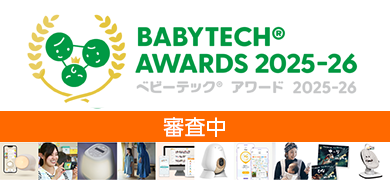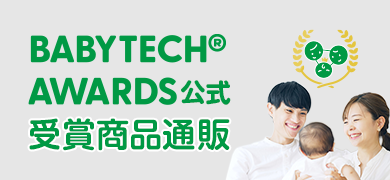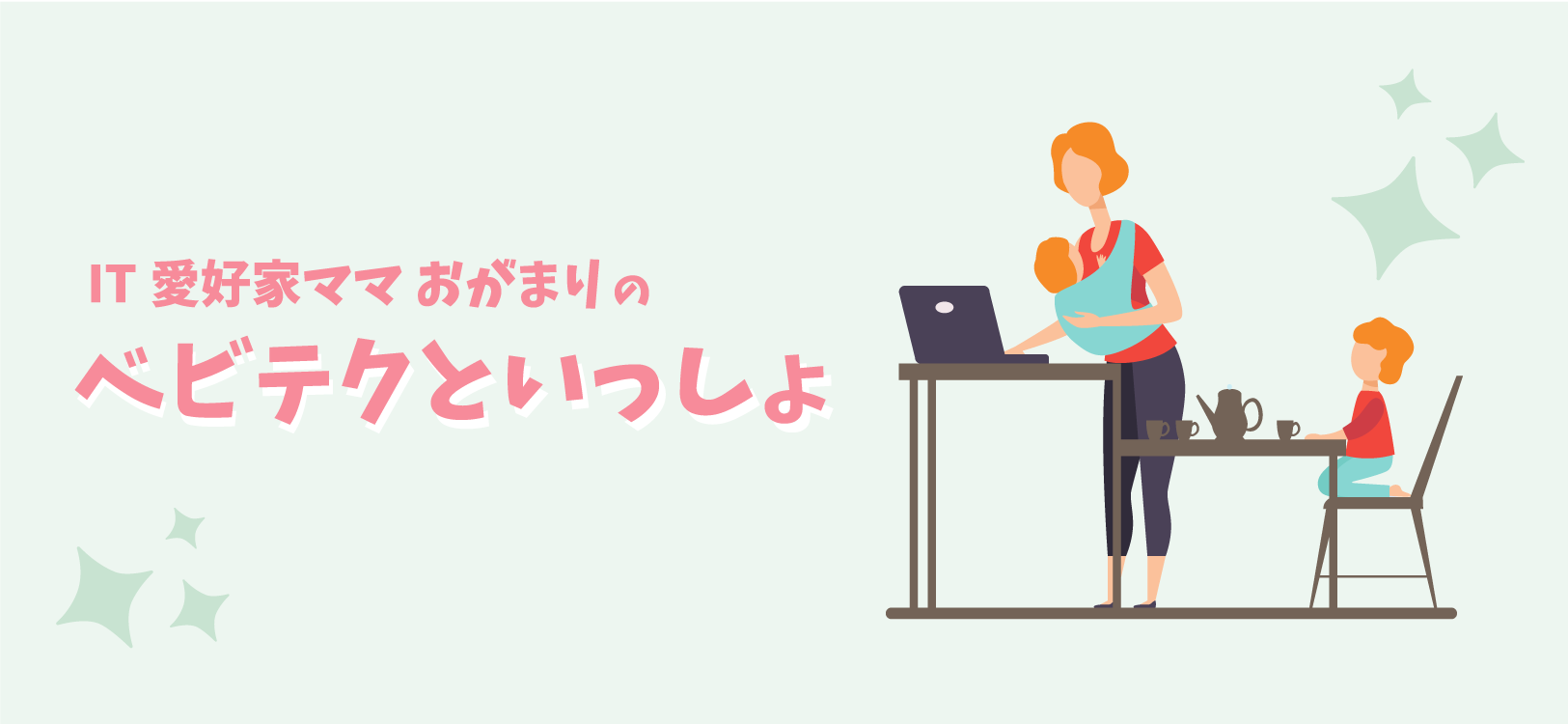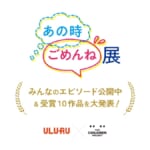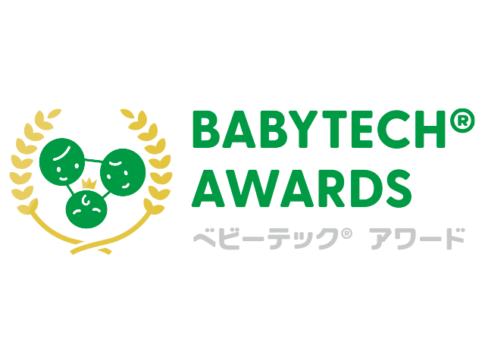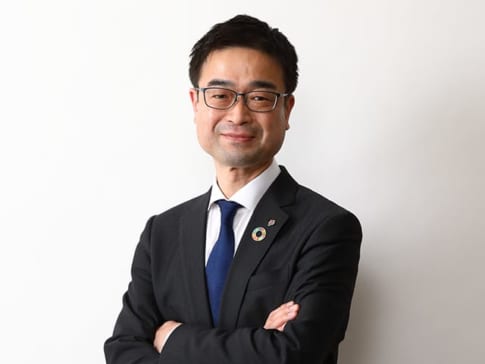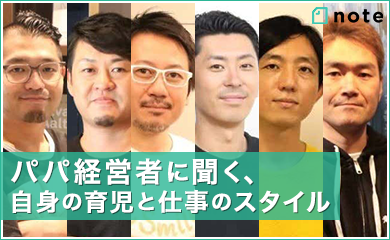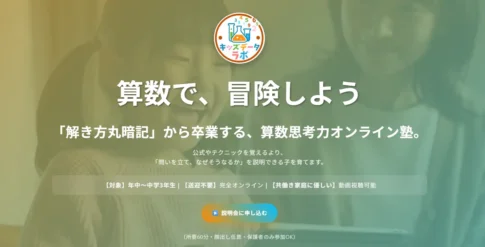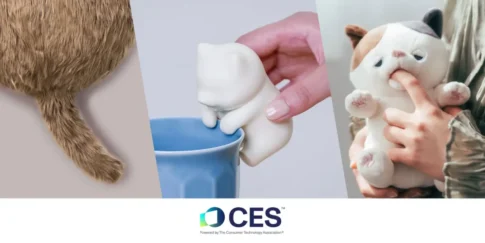- The following is content from the press release -
Aiming to create happiness for children through the power of photography and food, comprehensive childcare tech service "Hai Cheese! (headquartered in Chiyoda-ku, Tokyo; Nobuaki Chiba, President & CEO; hereinafter referred to as "the Company"), conducted a survey of 352 kindergartens and nursery schools nationwide and 891 parents with children attending nursery schools and kindergartens nationwide on their awareness of measures against heat stroke.

Survey Background
Record-breaking heat has continued in recent years, and high temperatures are predicted for 2025 as well. At childcare facilities and at home, countermeasures against the heat, which is becoming more serious every year, are an urgent issue.
Furthermore, from June 1, 2025, the Ministry of Health, Labor and Welfare's "Reinforcement of Heat Stroke Countermeasures in the Workplace" will come into effect, requiring stronger measures throughout the workplace, including childcare facilities.
Against this backdrop, we conducted a survey of childcare facilities and parents nationwide who use "Yes Cheese! and parents across Japan who use "Hai Cheese!" were surveyed on measures against heat stroke.
Topics of Survey Results
- 90% of childcare facilities suffer from restrictions on outdoor activities due to the heat wave, and many have scaled back seasonal events.
- 70% of parents are highly concerned about their children's inability to communicate changes in their health
Survey Results Topics Details
1. 70% of parents are reassured by measures taken by daycare facilities, while 90% of daycare facilities are troubled by restrictions on outdoor activities
When daycare facilities such as kindergartens and nursery schools were asked what measures they take to prevent heat stroke, about half of them responded that in addition to basic measures such as "frequent hydration (99.4%)" and "use and adjustment of air conditioning such as air conditioners and fans (97.7%)," about half of them also responded "preparation of rules and manuals for dealing with heat stroke (56.0%)," "emergency response and cooperation with medical institutions (48.0%)," and "conducting heat stroke-related training (46.9%). (0%)," "Emergency response and cooperation with medical institutions (48.0%)," and "Conducting training on heat stroke (46.9%)" were found to be actively implemented. This indicates that they are taking all possible measures against extreme heat not only in day-to-day operations, but also by setting up an organizational management system for emergency preparedness and improving staff knowledge.
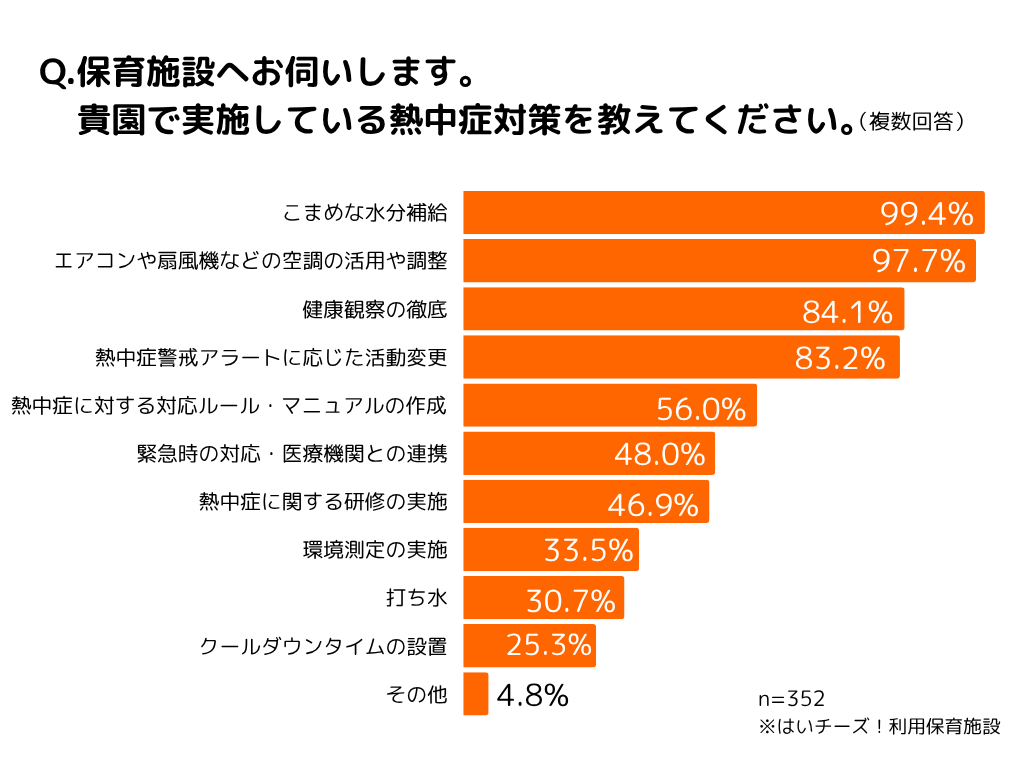
67.91 TP6T of the parents answered that they were "relieved" about these measures taken by daycare facilities, indicating that the measures taken to prepare for extreme heat received a certain level of appreciation.
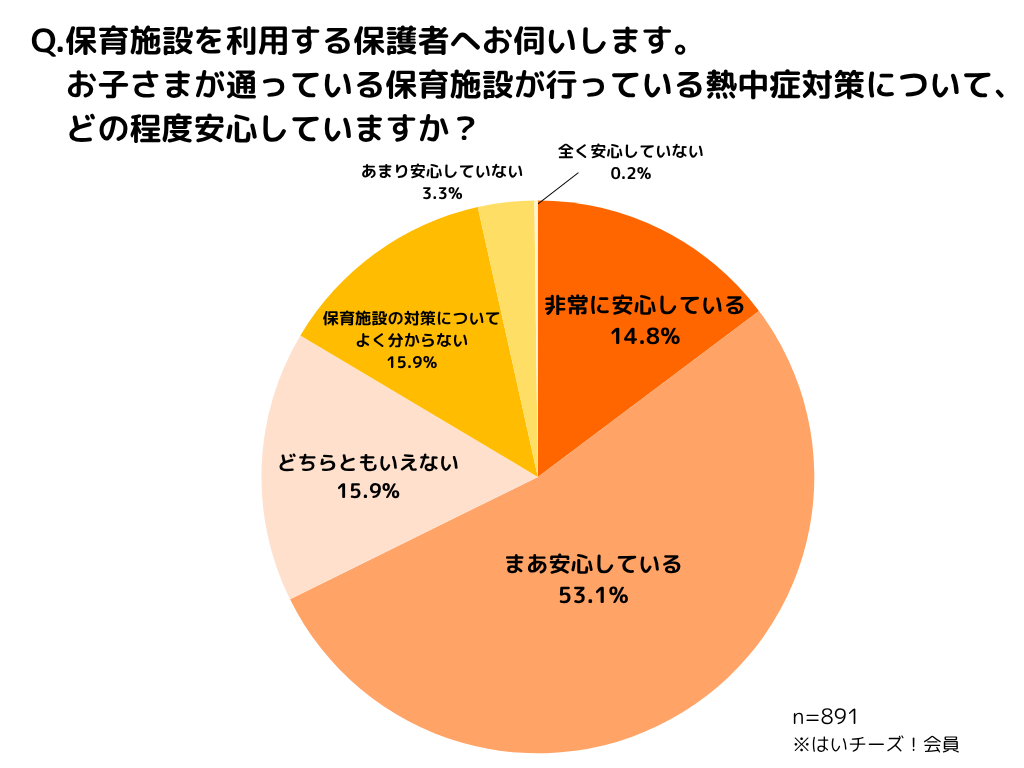
We also asked about any problems they had as a facility during last summer's childcare.
Due to the "change of activities according to heat stroke alert alerts" implemented by 83.21 TP6T childcare facilities, 88.6% of childcare facilities reported that they had trouble cancelling or restricting outdoor activities.
This highlighted the dilemma that the field is facing in that outdoor activities, which are essential for children's healthy development, have to be restricted due to the extremely hot weather.
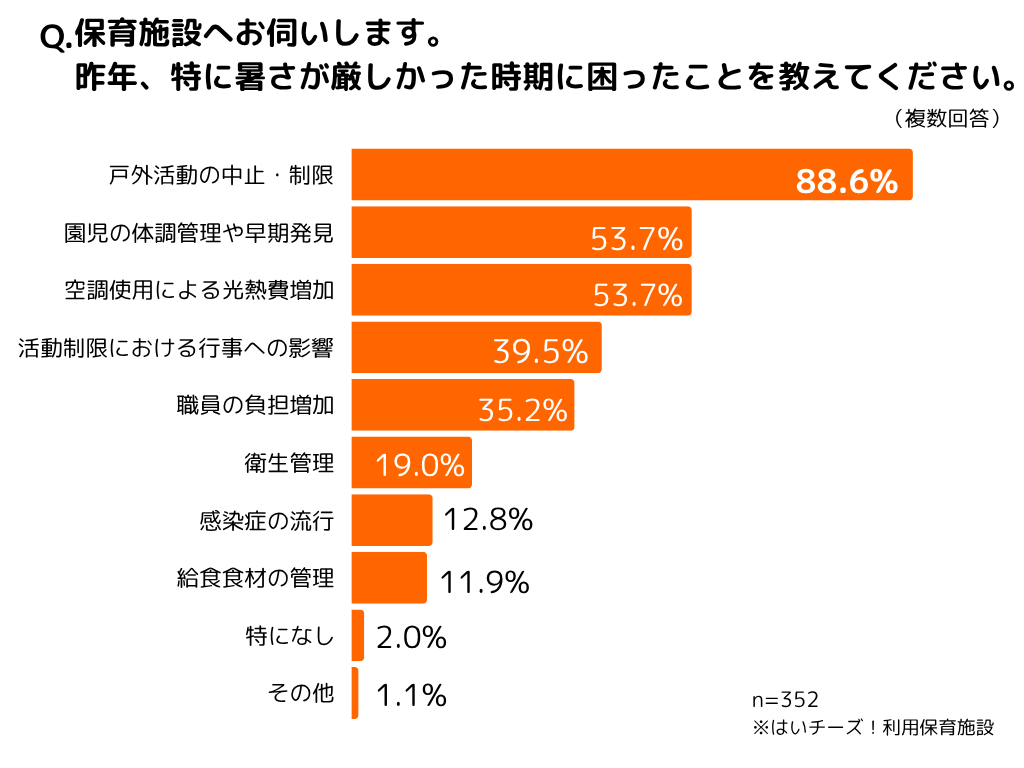
2.Risk of heat stroke is centered on outdoor activities; parents also worry about changes in physical condition while sleeping
6.1% of all parents reported that their children suffered heat stroke last summer. The most common situation when heat stroke occurred was while playing outdoors (53.7%), followed by while playing sports or exercising outdoors (24.1%), indicating that the risk is associated with time spent outdoors.
When parents were asked about situations in which they were concerned about heat stroke in their children, more than 40% responded that they were aware of the risk in all situations, not only during outdoor activities, but also "during activities at preschool and school (48.7%)," "while playing in water such as pools and the ocean (48.31 TP6T)," and "while sleeping (43.21 TP6T). It is clear that respondents are aware of the risks involved in all situations.
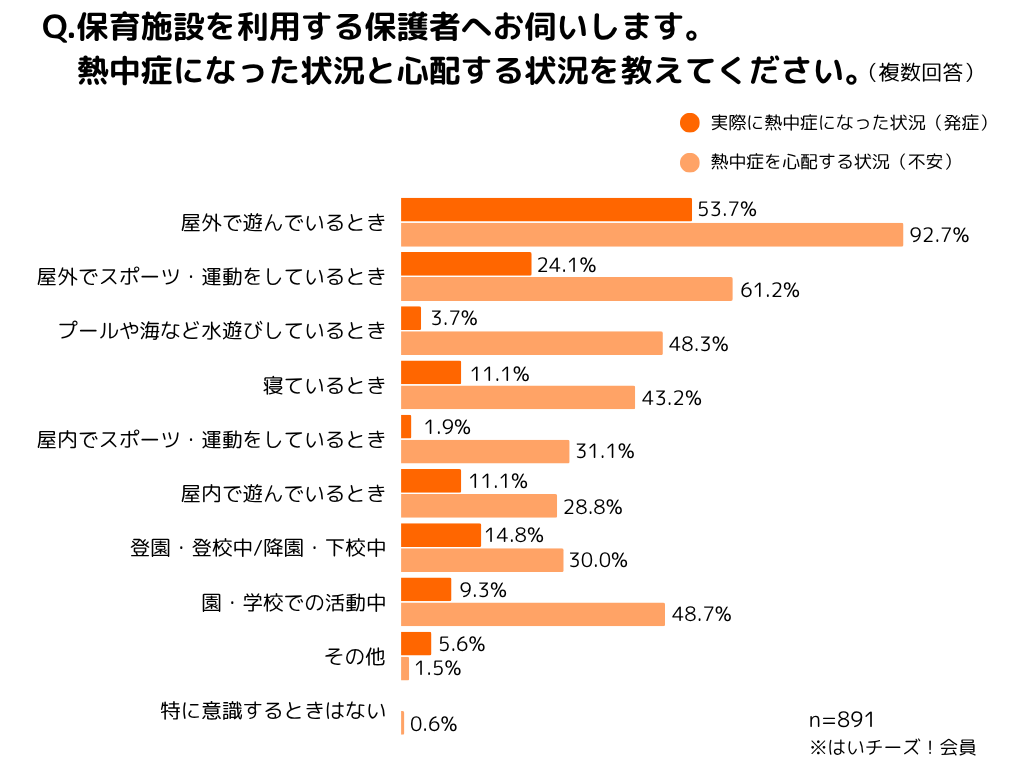
3. 70% of parents are concerned about whether their children can communicate changes in their physical condition. Some feel that the effectiveness of heat stroke countermeasures is a challenge.
When parents were asked about measures to prevent heat stroke at home, they indicated a high awareness of measures to deal with environmental factors during the daytime, such as "frequent hydration (96.4%)," followed by "appropriate clothing (83.3%)" and "room temperature and humidity control (82.2%). On the other hand, the percentage of respondents who implemented measures to prevent heat stroke through daily lifestyle habits, such as "getting enough sleep (51.4%)" and "eating a well-balanced diet (29.3%)," which are linked to building a body that can resist heat stroke, tended to be low. In particular, only about 30% of parents are aware of their diet, indicating a potential issue in daily physical condition management.
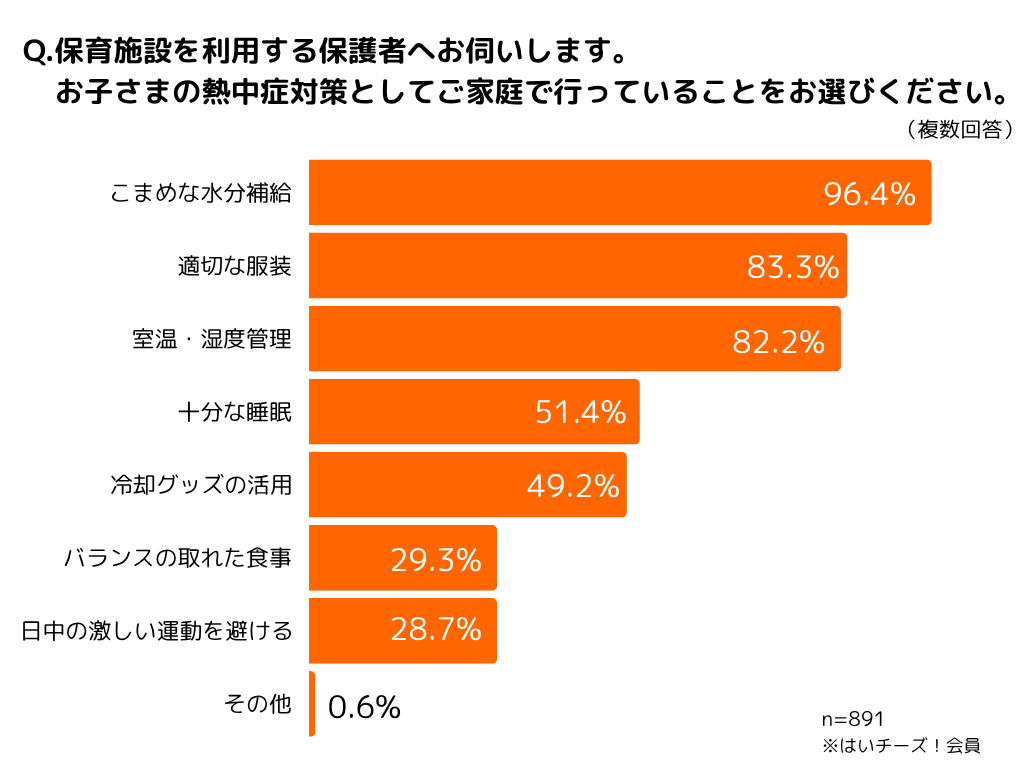
On the other hand, when parents were asked about their concerns and problems regarding measures to prevent heat stroke in their children, the most common response was "I am worried whether my child can tell me about changes in his/her physical condition by him/herself (71.31 TP6T)," followed by "I am worried whether I can recognize the early signs of heat stroke (58.81 TP6T). These results reveal that parents are concerned about the difficulty of noticing changes in their children's physical condition and whether or not their children can tell them about their own health problems, highlighting their concern that they may miss unusual changes.
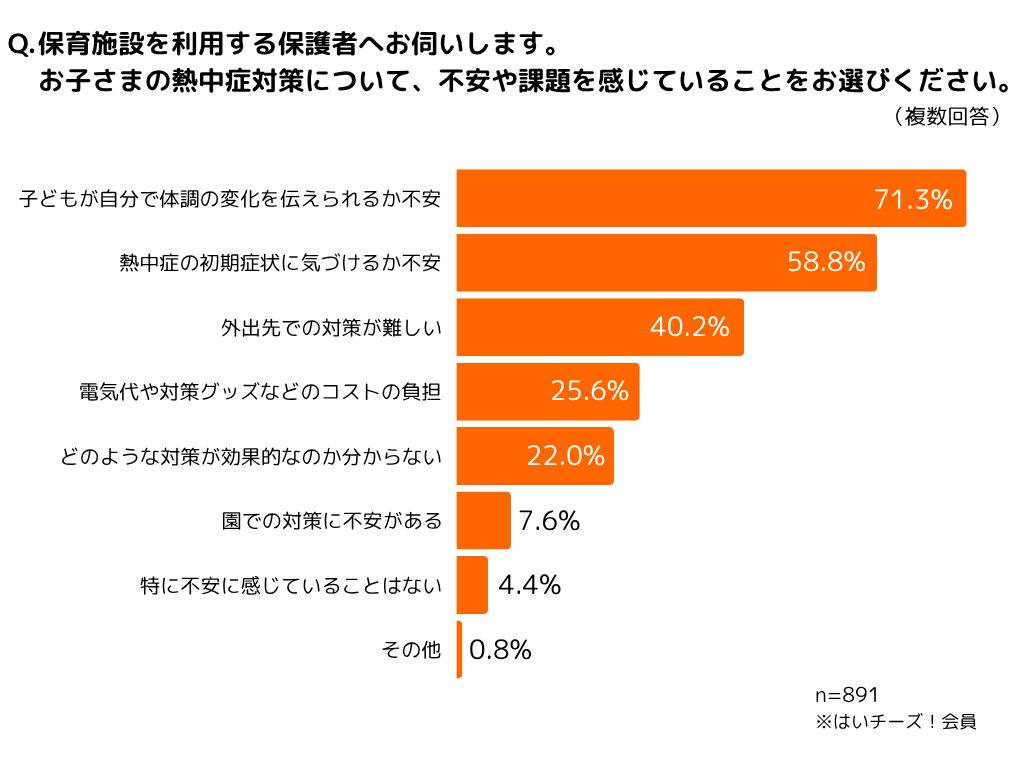
Although steady progress has been made in heat stroke countermeasures at childcare facilities and at home, there are still issues such as restrictions on outdoor activities due to the extreme heat and difficulties in communicating changes in children's physical condition. In order to ensure both the safety of children and their healthy growth, there is a need to enhance the ingenuity and support systems at childcare facilities, as well as strengthen information provision and support to alleviate parents' concerns.
Survey Summary
(1) Survey for childcare facilities
- Survey method: Yes Cheese! Web-based survey of facilities using the service
- Survey target: Yes Cheese! 352 facilities (daycare facilities (nursery schools, kindergartens, kindergartens, and childcare providers) nationwide) that use the service.
- Survey period: May 19 - May 28, 2025 Parents with children
(2) Survey for parents
- Survey method: Yes Cheese! Web-based survey of members
- Surveyed: Yes Cheese! Members (*) 891
- Survey period: May 29-June 7, 2025
*Yes, cheese! Members = Parents with preschool, kindergarten and nursery school children
Yes cheese! is
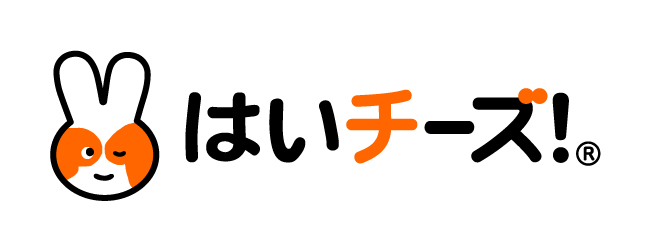
Cheese and cheese! (https://sencorp.co.jp/serviceWith the motto of "Peace for Children," "Peace for Children" is a comprehensive childcare tech service that aims to nurture the happiness of children together with daycare centers, kindergartens, and other facilities that take care of children and their parents.
We provide total support for seasonal events such as athletic meets and recitals, from photography to sales and response to inquiries, through our photo-specific Internet photo sales service "Hai Cheese! Photo", the childcare ICT "Yes Cheese! System", album production "Hi-Cheese! Album," and the video recording service "Hi-Cheese! Movie" to record children's memories, and the school lunch and nutrition education service "Hai Cheese! Vege" supports the healthy growth of children. We provide services that approach both the physical and mental aspects of children's lives so that their future lives will be richer and full of happiness.
Sen Corporation Company Profile
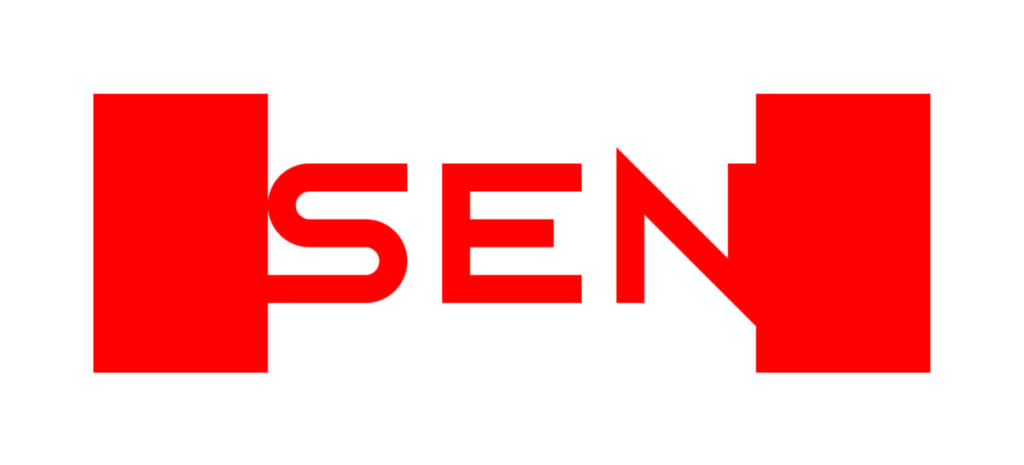
President and Representative Director: Nobuaki Chiba
Head Office : 1-3 Kioi-cho, Chiyoda-ku, Tokyo
Tokyo Garden Terrace Kioicho Kioi Tower 14F
Establishment : October 2004
HP :https://sencorp.co.jp
Yes Cheese! is a registered trademark of Sen Corporation.

